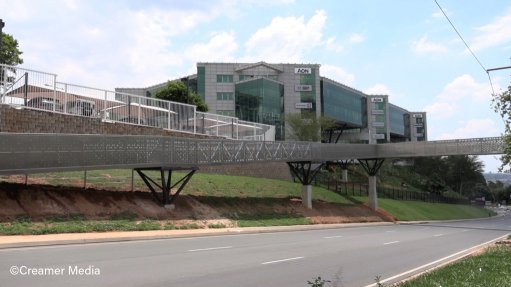Mandatory Separation at Source: A Vital Imperative for Sustainable Glass Recycling in South Africa
By Shabeer Jhetam, CEO of The Glass Recycling Company (TGRC)
In a world grappling with mounting environmental challenges, South Africa must address the pressing issue of waste management to foster a greener and more sustainable future. Central to this endeavour would be the implementation of Mandatory Separation at Source as a policy, a pivotal measure that could revolutionise the glass recycling industry and the recycling sector at large. As The Glass Recycling Company (TGRC), we hold a significant responsibility in advocating for this imperative change.
The implications of extensive waste generation, such as the accumulation of glass, plastics, and other materials in overflowing landfills, have a significant impact, not only on the environment but also on the efficient use of valuable resources. It is therefore, essential for government, businesses and individuals to recognise their responsibility in addressing this issue. TGRC is committed to promoting Mandatory Separation at Source in order to stimulate positive changes throughout the recycling industry.
While recycling, especially glass recycling, has made considerable progress, it is no longer sufficient to merely collect recyclables. To truly make a difference, we must adopt a holistic approach that ensures recyclable materials are of the highest quality and can be repurposed efficiently into new products. This is where Mandatory Separation at Source emerges as a game-changing solution.
What is Mandatory Separation at Source, and why is it critical for South Africa to adopt?
Mandatory Separation at Source is a policy that will mandate households and businesses to separate recyclables at the point of origin. This powerful concept requires individuals and businesses to manage their waste responsibly by ensuring that materials are separated where they are generated. In the context of glass recycling, it means separating glass from other waste, diverting glass bottles and containers to recycling facilities instead of landfills.
The benefits of Mandatory Separation at Source are multifaceted and are environmentally and economically compelling. This policy is more than just a regulation; it is a step toward establishing a sustainable and circular economy where waste becomes a resource rather than a burden.
Job Creation: A thriving recycling industry has the potential to create jobs and stimulate economic growth. Mandatory Separation at Source enabling increased waste collection will actively support the development of a robust recycling sector in South Africa.
Enhanced Material Quality: Separating recyclables at their source will reduce contamination and guarantees higher-quality materials, leading to a more efficient and cost-effective recycling process.
Resource Conservation: Mandatory Separation at Source will enable the conservation of valuable resources such as energy, water, and raw materials. It diminishes the need for extracting and producing new materials, thus alleviating the burden on our natural ecosystems.
Reduced Pollution: By diverting glass from landfills, we can make our environment cleaner and safer.
The National Waste Management Strategy (NWMS), published in 2019, outlines the government's long-term vision for waste management in South Africa and promotes mandatory separation at the source for recycling through several initiatives. We strongly champion its official integration into the Extended Producer Responsibility (EPR) framework to assure effective implementation.
As a country, we stand on the cusp of a new era in recycling, and Mandatory Separation at Source is the bridge that will lead us to a future where waste is no longer misused. It is an essential step toward a sustainable future, with businesses like TGRC playing a pivotal role.
The transition to Mandatory Separation at Source is not a choice; it is a collective responsibility. Let us embrace this transformative approach to recycling as only unified action can shape our environment for the better.
Article Enquiry
Email Article
Save Article
Feedback
To advertise email advertising@creamermedia.co.za or click here
Comments
Press Office
Announcements
What's On
Subscribe to improve your user experience...
Option 1 (equivalent of R125 a month):
Receive a weekly copy of Creamer Media's Engineering News & Mining Weekly magazine
(print copy for those in South Africa and e-magazine for those outside of South Africa)
Receive daily email newsletters
Access to full search results
Access archive of magazine back copies
Access to Projects in Progress
Access to ONE Research Report of your choice in PDF format
Option 2 (equivalent of R375 a month):
All benefits from Option 1
PLUS
Access to Creamer Media's Research Channel Africa for ALL Research Reports, in PDF format, on various industrial and mining sectors
including Electricity; Water; Energy Transition; Hydrogen; Roads, Rail and Ports; Coal; Gold; Platinum; Battery Metals; etc.
Already a subscriber?
Forgotten your password?
Receive weekly copy of Creamer Media's Engineering News & Mining Weekly magazine (print copy for those in South Africa and e-magazine for those outside of South Africa)
➕
Recieve daily email newsletters
➕
Access to full search results
➕
Access archive of magazine back copies
➕
Access to Projects in Progress
➕
Access to ONE Research Report of your choice in PDF format
RESEARCH CHANNEL AFRICA
R4500 (equivalent of R375 a month)
SUBSCRIBEAll benefits from Option 1
➕
Access to Creamer Media's Research Channel Africa for ALL Research Reports on various industrial and mining sectors, in PDF format, including on:
Electricity
➕
Water
➕
Energy Transition
➕
Hydrogen
➕
Roads, Rail and Ports
➕
Coal
➕
Gold
➕
Platinum
➕
Battery Metals
➕
etc.
Receive all benefits from Option 1 or Option 2 delivered to numerous people at your company
➕
Multiple User names and Passwords for simultaneous log-ins
➕
Intranet integration access to all in your organisation

















